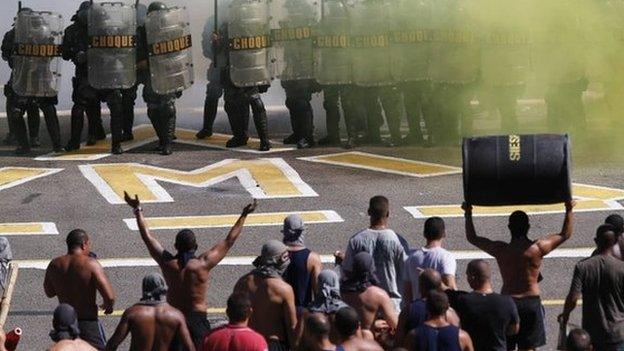Brazil World Cup terror plan focuses on lone extremists
- Published
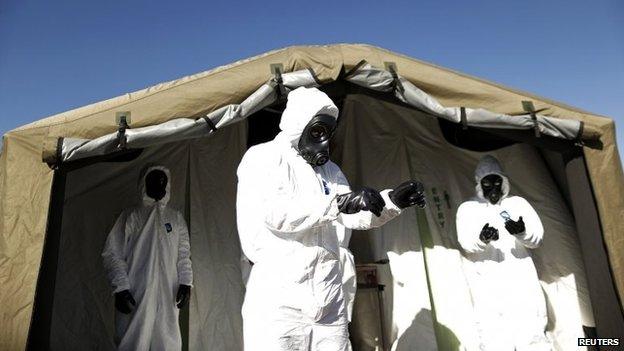
Brazilian security forces have trained for a wide variety of attack scenarios, including chemical and biological
Brazil's counter terrorist strategy for the World Cup will focus on the danger from "lone wolves", senior officials have told BBC Brasil.
However, Justice Minister Jose Eduardo Cardozo says he considers such an attack unlikely.
"Brazil can be calm about such a possibility," the minister said.
Speaking of potential protests, Mr Cardozo said the authorities would not tolerate violence committed by either demonstrators or the security forces.
Prepared and ready
Brazil's security forces have trained for several scenarios, including chemical and biological attacks.
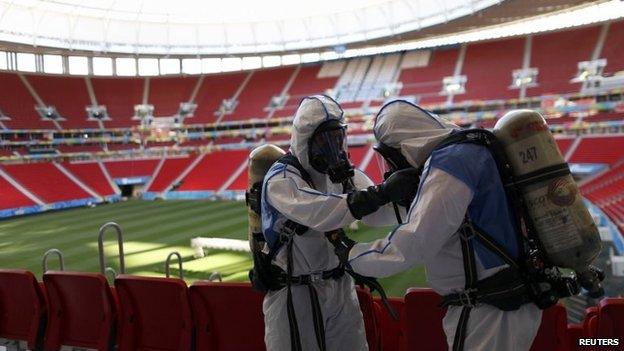
The forces trained on location at the Garrincha National Stadium in Brasilia
But their main focus has been on the possibility of an extremist bomb attack similar to that at the Boston marathon in 2013, officials say.
In Boston, two suspects not linked to extremist groups detonated two bombs killing three and injuring hundreds of people.
The head of Brazil's counter terrorist task force Gen Julio Cesar de Arruda also thinks that the most likely terrorist attack scenario is that of a "lone wolf" or an extremist acting without connection to known terrorist groups.
"This is the most difficult kind of attack to track or predict," he told BBC Brasil.
There will be more than 170,000 security personnel working on protecting the tournament in Brazil, including the police and the army.
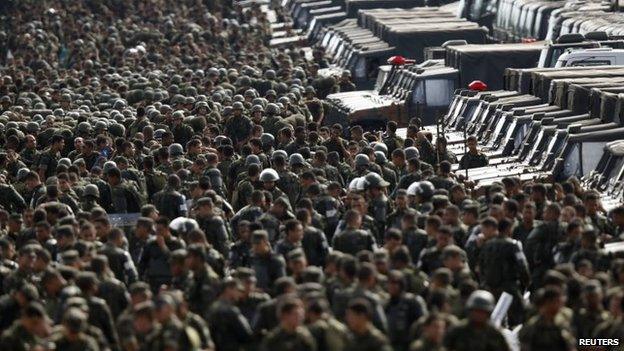
Army, navy and police personnel have been specially trained to detect and combat threats
The government is also deploying 1,850 members of the special forces and 36 helicopters as part of its counter terrorism unit.
National intelligence officials are reportedly also in contact with several international intelligence agencies.
Prison gang threat
Last year, a leader of the Sao-Paulo-based criminal organisation, First Command of the Capital or PCC, was recorded issuing threats of kidnappings involving tourists and bomb attacks.
The PCC said it would target the World Cup if its members were transferred to jails with higher security levels than the ones they are currently locked up in.
The authorities think that threat has gone away after the transfer was blocked by legal action.
While terrorist attacks are considered unlikely, the authorities think demonstrations are a given.
At least seven different social movements have said they will protest around the time of the opening match on Thursday in several Brazilian cities.
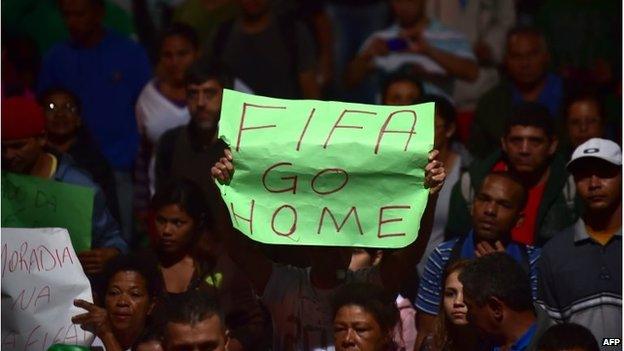
Social groups are planning demonstrations to protest against the amount of money spent on the World Cup
Mr Cardozo said that "abuses of any kind would not be tolerated".
He said the federal government had asked local authorities to ensure local police officers used only a moderate amount of force.
"Demonstrations can occur, it is legitimate that they take place, but the Brazilian government is prepared to ensure abuses will not take place," he assured.
- Published11 June 2014
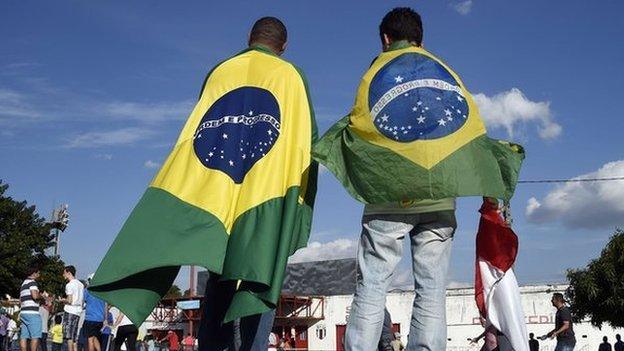
- Published11 May 2014
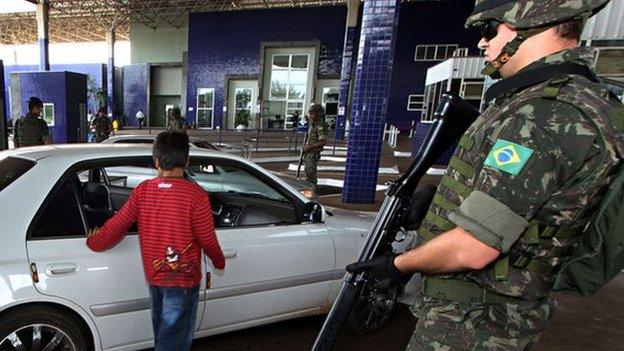
- Published27 February 2014
